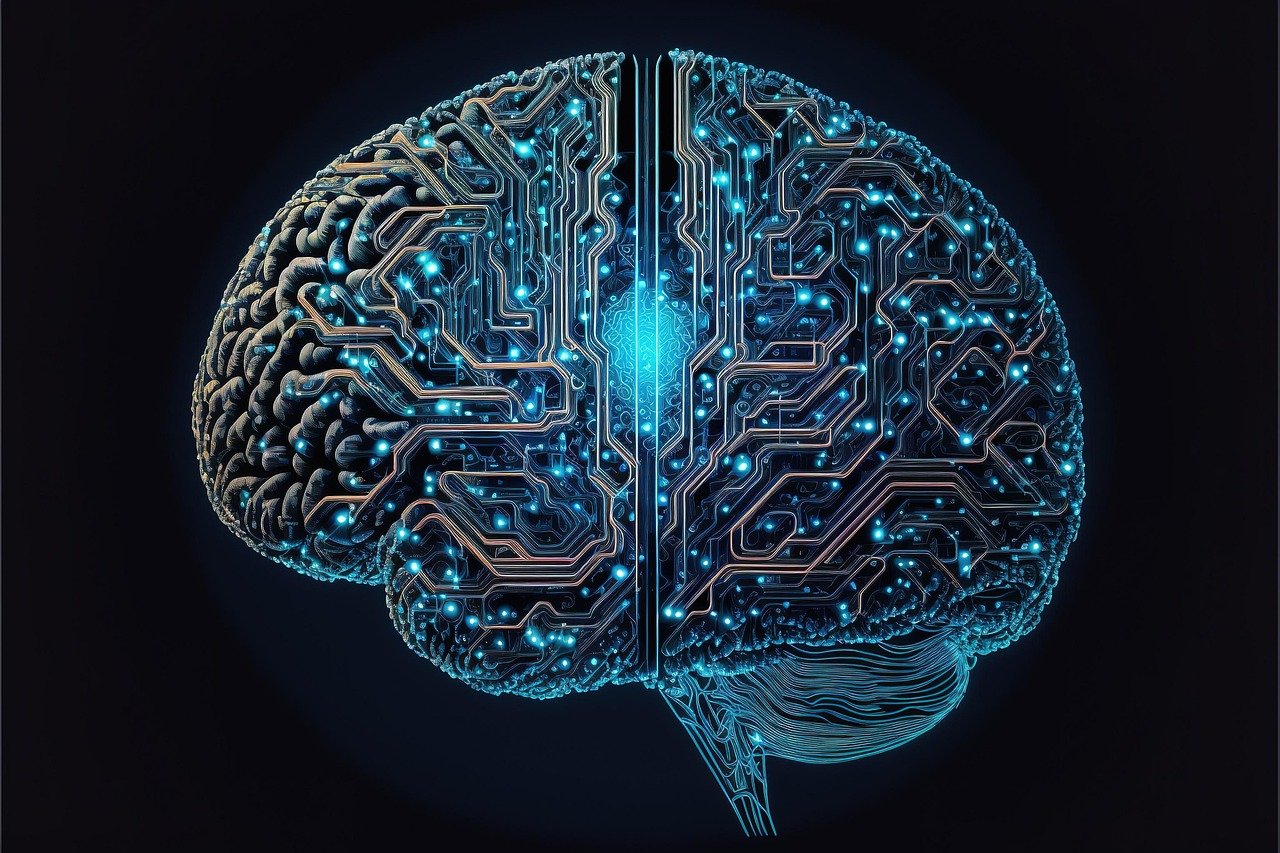Artificial intelligence (AI) is no longer a futuristic concept confined to science fiction. It’s a tangible force transforming industries, reshaping how we live and work, and driving innovation at an unprecedented pace. From self-driving cars to personalized healthcare, the applications of AI are vast and ever-expanding. This blog post delves into the diverse landscape of AI applications, exploring its impact across various sectors and offering insights into its potential for the future.
AI in Healthcare
AI is revolutionizing healthcare, offering solutions to improve diagnostics, personalize treatment, and streamline operations. Its ability to analyze vast datasets and identify patterns makes it an invaluable tool for medical professionals.
Diagnostic Assistance
- Image Analysis: AI algorithms can analyze medical images like X-rays, MRIs, and CT scans to detect anomalies and assist radiologists in making more accurate and faster diagnoses. For example, AI is being used to detect early signs of cancer, potentially saving lives through earlier intervention.
- Predictive Analytics: AI can predict patient outcomes based on historical data and individual risk factors, allowing for proactive interventions and personalized care plans. This helps in identifying patients at high risk for developing certain conditions or experiencing adverse events.
- Drug Discovery: AI accelerates the drug discovery process by identifying potential drug candidates, predicting their efficacy, and optimizing clinical trial design. This reduces the time and cost associated with bringing new drugs to market.
Personalized Medicine
- Tailored Treatment Plans: AI analyzes patient data, including genetics, lifestyle, and medical history, to create personalized treatment plans that are more effective and minimize side effects. This approach moves away from a one-size-fits-all approach to healthcare.
- Remote Monitoring: AI-powered wearable devices and remote monitoring systems can track patient vital signs and activity levels, providing real-time data to healthcare providers. This enables timely interventions and prevents complications. An example is AI-powered insulin pumps that automatically adjust insulin levels based on glucose monitoring.
Operational Efficiency
- Administrative Automation: AI automates administrative tasks like appointment scheduling, insurance claim processing, and medical billing, freeing up healthcare professionals to focus on patient care.
- Virtual Assistants: AI-powered virtual assistants can provide patients with information, answer questions, and guide them through the healthcare system, improving patient satisfaction and reducing the burden on healthcare staff.
AI in Finance
The financial industry is leveraging AI to enhance security, improve customer service, and make more informed investment decisions. AI’s analytical power is transforming how financial institutions operate.
Fraud Detection and Prevention
- Anomaly Detection: AI algorithms can identify unusual patterns in financial transactions, flagging potentially fraudulent activities in real-time. This helps banks and financial institutions prevent fraud losses and protect customer accounts.
- Risk Assessment: AI assesses credit risk and predicts loan defaults by analyzing credit history, financial statements, and other relevant data. This helps lenders make more informed decisions about loan approvals and interest rates.
Algorithmic Trading
- Automated Trading Strategies: AI-powered trading algorithms execute trades based on pre-defined rules and market conditions, optimizing investment returns and minimizing risk. These algorithms can analyze vast amounts of data and react to market changes faster than human traders.
- Portfolio Optimization: AI helps investors optimize their portfolios by identifying the best mix of assets to achieve their financial goals while minimizing risk. It considers factors like market volatility, investment horizons, and risk tolerance.
Customer Service
- Chatbots: AI-powered chatbots provide instant customer support, answering questions, resolving issues, and guiding customers through financial products and services. This improves customer satisfaction and reduces the workload on human customer service agents.
- Personalized Financial Advice: AI can analyze a customer’s financial situation and provide personalized financial advice, such as recommendations for saving, investing, and managing debt. This helps customers make informed financial decisions and achieve their financial goals.
AI in Manufacturing
AI is driving efficiency, improving quality control, and enabling predictive maintenance in the manufacturing sector. The application of AI enhances productivity and reduces operational costs.
Predictive Maintenance
- Equipment Monitoring: AI analyzes sensor data from equipment to predict when maintenance is needed, preventing costly breakdowns and downtime. This allows manufacturers to schedule maintenance proactively, minimizing disruptions to production.
- Optimized Performance: AI algorithms can optimize equipment settings and operating parameters to maximize performance and efficiency. This reduces energy consumption, improves output, and extends the lifespan of equipment.
Quality Control
- Automated Inspection: AI-powered vision systems inspect products for defects, ensuring consistent quality and reducing the risk of faulty products reaching customers. These systems can identify even the smallest defects that are difficult for human inspectors to detect.
- Real-time Monitoring: AI monitors production processes in real-time, identifying potential issues and alerting operators to take corrective action. This prevents defects from occurring in the first place and reduces waste.
Supply Chain Optimization
- Demand Forecasting: AI forecasts demand for products based on historical data, market trends, and other factors, helping manufacturers optimize inventory levels and avoid stockouts.
- Logistics Management: AI optimizes logistics and transportation routes, reducing costs and improving delivery times. This includes route planning, shipment tracking, and warehouse management.
AI in Retail
AI is transforming the retail industry by personalizing customer experiences, optimizing inventory management, and enhancing marketing effectiveness. AI enables retailers to better understand and serve their customers.
Personalized Recommendations
- Product Recommendations: AI analyzes customer browsing history, purchase behavior, and preferences to recommend relevant products, increasing sales and customer satisfaction.
- Targeted Marketing: AI enables retailers to deliver targeted marketing messages and promotions to individual customers based on their interests and buying habits. This improves the effectiveness of marketing campaigns and reduces wasted advertising spend.
Inventory Management
- Demand Prediction: AI predicts demand for products based on historical data, seasonal trends, and other factors, helping retailers optimize inventory levels and avoid stockouts or overstocking.
- Supply Chain Optimization: AI optimizes supply chain operations, ensuring that products are available when and where customers need them, while minimizing inventory costs.
Customer Experience
- Chatbots and Virtual Assistants: AI-powered chatbots and virtual assistants provide instant customer support, answer questions, and guide customers through the online shopping experience. This improves customer satisfaction and increases sales.
- Personalized Shopping Experiences: AI can personalize the online and in-store shopping experiences by displaying relevant products, offering customized promotions, and providing personalized recommendations.
AI in Transportation
AI is revolutionizing transportation with self-driving cars, optimized logistics, and improved traffic management. These advancements promise to improve safety, reduce congestion, and increase efficiency.
Autonomous Vehicles
- Self-Driving Cars: AI is the core technology behind self-driving cars, enabling them to perceive their environment, make decisions, and navigate without human intervention.
- Autonomous Trucks and Delivery Vehicles: AI is being used to develop autonomous trucks and delivery vehicles, which can improve efficiency, reduce costs, and address driver shortages.
Traffic Management
- Smart Traffic Lights: AI can optimize traffic light timing in real-time based on traffic flow, reducing congestion and improving travel times.
- Predictive Traffic Analysis: AI analyzes historical and real-time traffic data to predict traffic patterns and provide drivers with alternative routes, helping them avoid congestion.
Logistics and Delivery
- Route Optimization: AI optimizes delivery routes based on factors like traffic conditions, delivery time windows, and vehicle capacity, reducing costs and improving delivery efficiency.
- Warehouse Automation: AI automates warehouse operations, such as picking, packing, and sorting, improving efficiency and reducing labor costs.
Conclusion
AI applications are transforming industries and reshaping our world in profound ways. From improving healthcare and finance to revolutionizing manufacturing, retail, and transportation, the potential of AI is vast and ever-expanding. As AI technology continues to advance, we can expect even more innovative applications to emerge, driving economic growth, improving quality of life, and solving some of the world’s most pressing challenges. Staying informed about the latest advancements and embracing the potential of AI is crucial for individuals and organizations alike to thrive in this rapidly evolving technological landscape.



